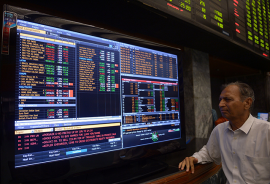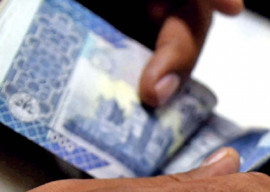
Global investors have made the second-highest historical investment in Pakistan’s sovereign debt securities, specifically three to 12-month T-bills, totalling $581 million in the fiscal year ending June 30, 2024. This significant investment exhibits rising confidence in the domestic economy.
Citing the State Bank of Pakistan’s (SBP) data, Topline Research reported that Pakistan attracted a net investment of $194 million in the debt instrument alone in the last month (June) of FY24, boosting the full-year investment to $581 million. These are the second-highest net inflows in a year in Pakistan’s history, following the peak of $621 million in FY20. This marks the highest inflows in the past four years since FY20. The foreign portfolio investment hit an all-time high in a month at $1.4 billion in January 2020, according to the research house.
Foreign investors have staged a powerful comeback to the domestic debt market since January 2024, driven by the return of stability in the rupee-dollar exchange rate over the past several months at Rs278-278.63/$, and the offer of a significantly higher rate of return at around 20% on T-bills compared to 6-7% on debt securities in developed countries around the world.
The portfolio investment (hot money) inflows have helped stabilise the country’s foreign exchange reserves (held by the SBP) at $9.42 billion, improving the external economy. A breakdown of the central bank data suggests that UK-based portfolio investors injected the single largest net investment of $322.5 million in Pakistan’s T-bills in FY24, followed by Belgium-based investors pouring in a net $107.5 million during the year. US investors ranked third in terms of investment volumes, with $74.7 million in the year. Such investments also came from other countries including Australia, Bahrain, the Cayman Islands, Ireland, Luxembourg, and the UAE.
While speaking to The Express Tribune, Muhammad Awais Ashraf, Director of Research at AKD Securities, projected that foreign investors would continue to pour more capital into rupee-denominated T-bills. The outstanding global investment volume may climb back to the historical high recorded at $3.6 billion in two years (FY19 and FY20). The outbreak of COVID-19 had caused foreign investors to aggressively pull back investments. He said the rupee-dollar parity would remain stable over the next four to six months at around the current level, and returns on investment in T-bills would remain high even if revised down by a couple of percentage points in the near future, as the gap between the rates of return on T-bills and those in developed countries remains significantly large. Moreover, a couple of developed countries, including the European Central Bank and the Canadian central bank, have also resumed cutting rates. The US is also considering a rate cut, maintaining the favourable gap in return on investment for Pakistan.
Many financial experts projected that hot money inflows would ramp up significantly after the International Monetary Fund (IMF) Executive Board gives its final approval for the $7 billion new loan programme for Pakistan.
Ashraf said the foreign investment inflows are a result of Pakistan’s central bank’s consistency in policymaking, such as maintaining a tight monetary policy with a record high policy rate of 22% from June 2023 to June 2024 and making the first cut in four years of 1.5 percentage points last June to 20.5%. Additionally, the bank took structural reforms to fix inter-bank and open currency markets, conducted a crackdown against foreign currency smuggling, and initiated the merger of small currency companies to increase liquidity. Consequently, the domestic currency strengthened by 10.8% or Rs30 from the first week of September 2023 to the last week of March 2024. Since then, it has remained stable in the range of Rs278-278.63/$.



















COMMENTS
Comments are moderated and generally will be posted if they are on-topic and not abusive.
For more information, please see our Comments FAQ